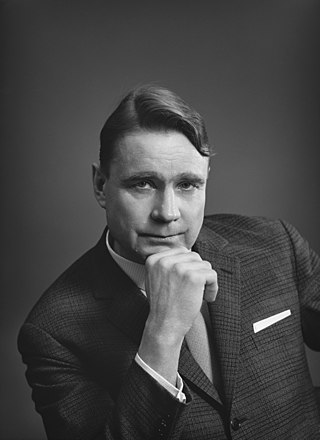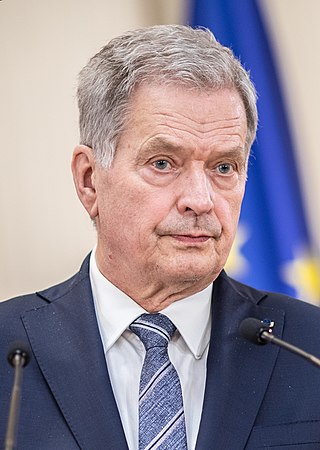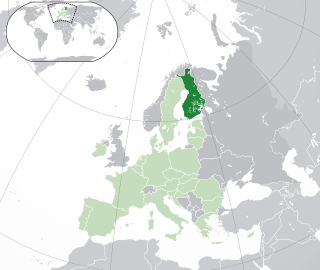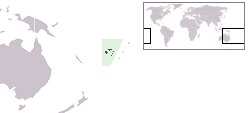| |||||
| Decades: | |||||
|---|---|---|---|---|---|
| See also: | |||||
The year 2017 is the centenary of the independence of Finland.
| |||||
| Decades: | |||||
|---|---|---|---|---|---|
| See also: | |||||
The year 2017 is the centenary of the independence of Finland.
| | This section needs expansion. You can help by adding to it. (August 2017) |

Finland, officially the Republic of Finland, is a Nordic country in Northern Europe. It borders Sweden to the northwest, Norway to the north, and Russia to the east, with the Gulf of Bothnia to the west and the Gulf of Finland to the south, opposite Estonia. Finland covers an area of 338,145 square kilometres (130,559 sq mi) and has a population of 5.6 million. Helsinki is the capital and largest city. The vast majority of the population are ethnic Finns. Finnish and Swedish are the official languages, with Swedish being the native language of 5.2% of the population. Finland's climate varies from humid continental in the south to boreal in the north. The land cover is predominantly boreal forest biome, with more than 180,000 recorded lakes.

The politics of Finland take place within the framework of a parliamentary representative democracy. Finland is a republic whose head of state is President Sauli Niinistö, who leads the nation's foreign policy and is the supreme commander of the Finnish Defence Forces. Finland's head of government is Prime Minister Petteri Orpo, who leads the nation's executive branch, called the Finnish Government. Legislative power is vested in the Parliament of Finland, and the Government has limited rights to amend or extend legislation. The Constitution of Finland vests power to both the President and Government: the President has veto power over parliamentary decisions, although this power can be overruled by a majority vote in the Parliament.

Urho Kaleva Kekkonen, often referred to by his initials UKK, was a Finnish politician who served as the eighth and longest-serving president of Finland from 1956 to 1982. He also served as prime minister, and held various other cabinet positions. He was the third and most recent president from the Agrarian League/Centre Party. Head of state for nearly 26 years, he dominated Finnish politics for 31 years overall. Holding a large amount of power, he won his later elections with little opposition and has often been classified as an autocrat. Nevertheless, he remains a respected figure.

Mauno Henrik Koivisto was a Finnish politician who served as the ninth president of Finland from 1982 to 1994. He also served as the country's prime minister twice, from 1968 to 1970 and again from 1979 to 1982. He was also the first member of the Social Democratic Party to be elected as President of Finland.
The National Coalition Party is a liberal-conservative political party in Finland.

The Centre Party, officially the Centre Party of Finland, is an agrarian political party in Finland.

Sauli Väinämö Niinistö is a Finnish politician who has served as the 12th president of Finland since March 2012.
Same-sex marriage has been legal in Finland since 1 March 2017. A bill for the legalisation of same-sex marriages was approved by the Finnish Parliament in a vote of 101–90 on 12 December 2014 and signed into law by President Sauli Niinistö on 20 February 2015. Further legislation to harmonise other laws with the legalisation of same-sex marriage was passed in 2016. The law took effect on 1 March 2017. Finland was the last Nordic sovereign state to legalise same-sex marriage, the 13th country in Europe overall, and the 21st worldwide.

Heikki Ritavuori was a Finnish lawyer, a politician from the National Progressive Party, a member of the Parliament of Finland and Minister of the Interior. He was the closest colleague of President K. J. Ståhlberg and was Minister of the Interior in J. H. Vennola's first and second cabinets from 1919 to 1922 for a total of 526 days. Heikki Ritavuori is a unique figure in Finland's political history because he is not remembered for his life's work, but instead for its end. Minister Ritavuori was shot dead at the door to his home in Helsinki in February 1922.

Lesbian, gay, bisexual, and transgender (LGBT) rights in Finland are among the most advanced in Europe. Both male and female same-sex sexual activity have been legal in Finland since 1971 with "promotion" thereof decriminalized and the age of consent equalized in 1999. Homosexuality was declassified as an illness in 1981. Discrimination based on sexual orientation in areas such as employment, the provision of goods and services, etc., was criminalized in 1995 and discrimination based on gender identity in 2005.

Lesbian, gay, bisexual, and transgender (LGBT) rights in Israel are considered the most developed in the Middle East. Although same-sex sexual activity was legalized in 1988, the former law against sodomy had not been enforced since a court decision in 1963. Israel became the first country in Asia to recognize unregistered cohabitation between same-sex couples, making it the first country in Asia to recognize same-sex unions in any capacity. Although same-sex marriages are not performed in the country, Israel recognizes same-sex marriages performed elsewhere. Discrimination on the grounds of sexual orientation was prohibited in 1992. Same-sex couples are allowed to jointly adopt, following a landmark court decision in 2008. Previously, stepchild adoption, as well as limited co-guardianship rights for non-biological parents, were permitted. LGBT people are also allowed to serve openly in the military.

Lesbian, gay, bisexual and transgender (LGBT) rights in Fiji have evolved rapidly over the years, however LGBT people may still face some legal challenges not experienced by non-LGBT residents. In 1997, Fiji became the second country in the world after South Africa to explicitly protect against discrimination based on sexual orientation in its Constitution. In 2009, the Constitution was abolished. The new Constitution, promulgated in September 2013, bans discrimination based on sexual orientation and gender identity or expression. However, same-sex marriage remains banned in Fiji and reports of societal discrimination and bullying are not uncommon.


Islamic terrorism in Europe has been carried out by the Islamic State (ISIL) or Al-Qaeda as well as Islamist lone wolves since the late 20th century. Europol, which releases the annual EU Terrorism Situation and Trend report (TE-SAT), used the term "Islamist terrorism" in the years 2006–2010, "religiously inspired terrorism" 2011–2014, and has used "jihadist terrorism" since 2015. Europol defines jihadism as "a violent ideology exploiting traditional Islamic concepts".

The Invasion of Åland was a 1918 military campaign of World War I in Åland, Finland. The islands, still hosting Soviet Russian troops, were first invaded by Sweden in late February and then by the German Empire in early March. The conflict was also related to the Finnish Civil War including minor fighting between the Finnish Whites and the Finnish Reds.

The 2017 Turku attack took place on 18 August 2017 at around 16:02–16:05 (UTC+3) when 10 people were stabbed in central Turku, Southwest Finland. Two women were killed in the attack and eight people sustained injuries.

The Independence Day Reception is an annual event organised by the President of Finland at the Presidential Palace in Helsinki on 6 December, Finland's Independence Day. Invitations are sent to all members of parliament and other representatives of the national and municipal governments, the ambassadors to Finland, representatives of NGOs, important business people, and people who distinguished themselves during the year in the arts, sports, sciences, and other fields.

The Helsinki–Turku high-speed railway or Espoo–Salo-oikorata, also formerly known as the ELSA-rata (Espoo-Lohja-Salo), is a proposed railway line in the planning stage to provide a more direct connection between Helsinki and Turku, Finland than the current Rantarata railway line which follows the southern coast. The project is also known as Turun tunnin juna, despite the fact that a journey between Helsinki and Turku on the new line would last about one hour and twenty minutes.

In Finland, the far right was strongest in 1920–1940 when the Academic Karelia Society, Lapua Movement, Patriotic People's Movement (IKL) and Export Peace operated in the country and had hundreds of thousands of members. In addition to these dominant far-right and fascist organizations, smaller Nazi parties operated as well.

Maija Riitta Perho is a Finnish politician. She represented Varsinais-Suomi in the Parliament of Finland from 1991 to 2007 as a member of the National Coalition Party. From 1999 to 2003, she was Finland's minister of social affairs and health in the cabinet of Prime Minister Paavo Lipponen.